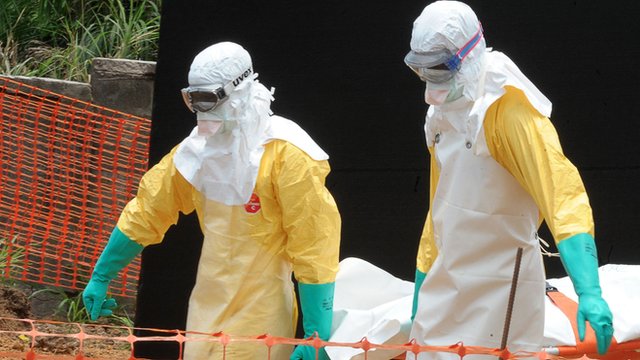
We’ve just passed a challenging and little-noticed anniversary: Last week, the Ebola outbreak in West Africa reached its first birthday. This comes as Liberia was about to record a milestone achievement, that being an entire incubation period without a new instance of the disease popping up — a sign that the chain of person to person transmission might have been broken — but on Friday, it declared that it had discovered a single new instance. How the girl became infected is uncertain; it is possible that she symbolizes, not a fresh outbreak, but a short interruption in an otherwise promising outlook.
It has been decades since there was an outbreak of this continuity and magnitude, and the anniversary has ignited some emotions because people fear there’ll be future outbreaks.
In a published report, Doctors Without Borders (DWB) criticized the results of the discovery of the very first instances in the past year, deriding an international coalition of inaction:
“The Ebola outbreak proved to be an exceptional occasion that exposed the reality of how wasteful and slow health and support systems are to react to crises, especially when it comes to the loss of tens of thousands of lives.”
Conscientiously, DWB also scored its own response: analyzing its slowness to assemble the entire organization, problems selecting among competing priorities, and its fight to balance care for patients while exercising its duty to protect its employees.
Meanwhile, last week was the powerful, annually held TED seminar, which focuses on ‘thoughts worth spreading.’ Two leading members of the global response to Ebola talked at the convention and concurrently released bits predicated on their discussions to make sure that their thoughts had extensive distribution. TED is famous for a sort of indomitable technological confidence — from biosynthetic design, to genetic engineering, to self-driving cars — so it was refreshing and a little astonishing to see how attentively the TED crowd listened to conversations which were quantified and sometimes maybe outright negative.
One speaker, Berkley, stated, “We’ve understood Ebola since 1976, but…” he added, “…the individuals most in danger from these disorders are also the ones least able to afford vaccines. It’s just overly commercially insecure.”
In a companion essay in Nature, Berkley aims to alter the way vaccines are financed, switching to a government-business partnership that could get vaccines out immediately after the basic research is paid for.
“When an outbreak occurs and vaccines are desired, it’d help significantly to have vectors prepared to deliver them. With the proper investment, these vectors, usually a benign virus or bacterium, may be ready and analyzed ahead of time. Crucially, they may be pressed into service to handle a multitude of ailments.
Such generic vectors would, in effect, modularize the vaccine development process running much of the security testing and ironing out procedures for various vectors prepared for the inclusion of a payload of antigen. By developing such mechanics ahead of time, and pre-testing them for security and dosage, we can conserve substantial levels of cash and time by having stockpiles frozen and prepared to be used or effectiveness testing as soon as an outbreak happens.”
In a different conversation, a philanthropist, Gates, echoed Berkley’s call for better vaccine development into a multi-stranded agreement, laying better groundwork for handling outbreaks. Remembering the fixation with world-wide nuclear war that controlled his youth, he said:
“If anything is to kill over 10 million men and women in the following decades, it’s most likely going to be an extremely contagious virus, instead of a war: not missiles, but microbes. [While] We’ve invested a large sum in nuclear deterrence, we really have invested almost nothing as far as a method to prevent an outbreak. We’re not prepared.”
SOURCE:
“”We Are Not Ready”: Ebola Analysis from Front-Line Workers (And Bill Gates) | WIRED.” Wired.com. Conde Nast Digital, n.d. Web. 23 Mar. 2015. http://www.wired.com/2015/03/ebola-ted/





The common FLU kills more people than Ebola every year.
Politely shut the fuck up.